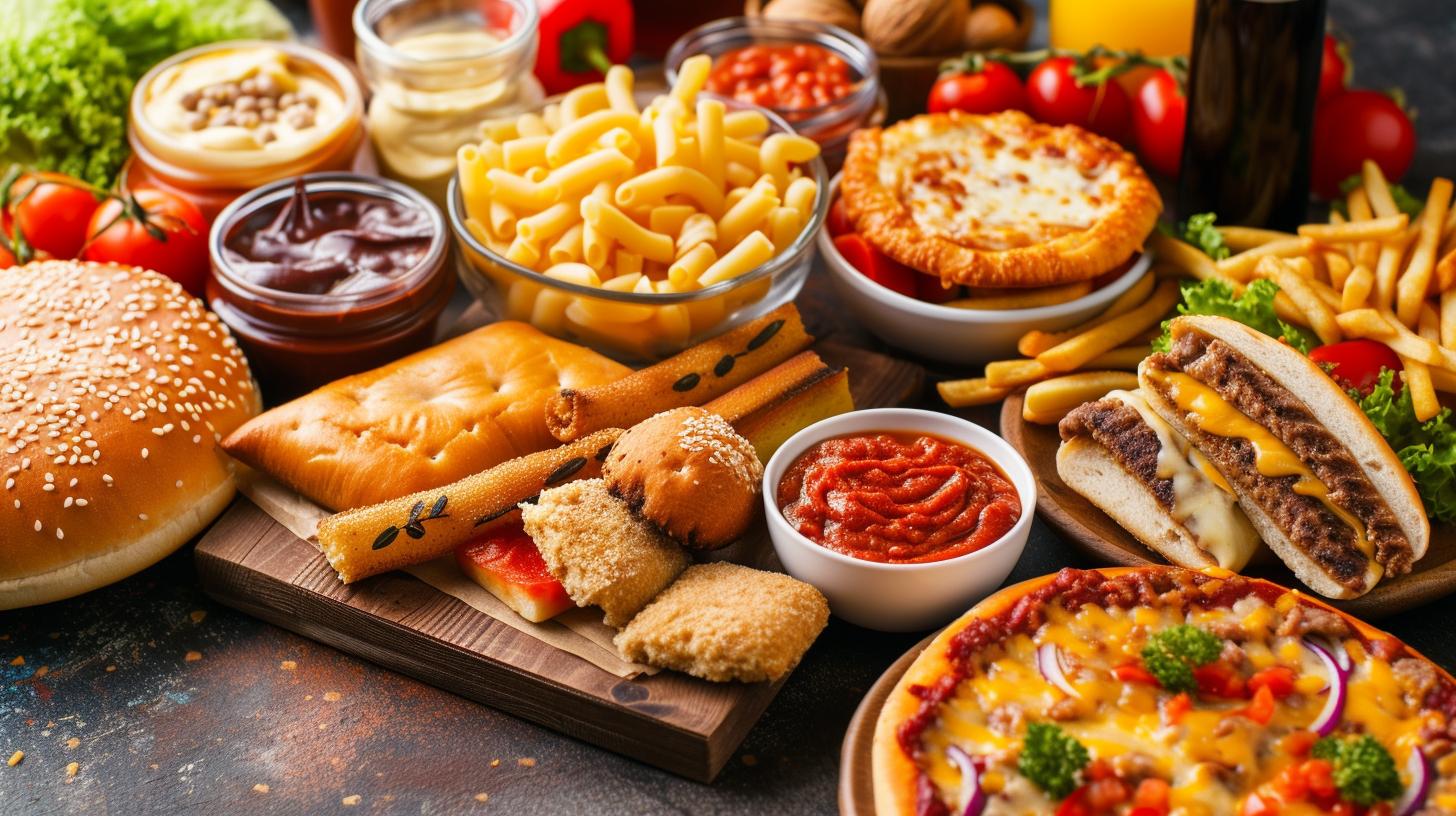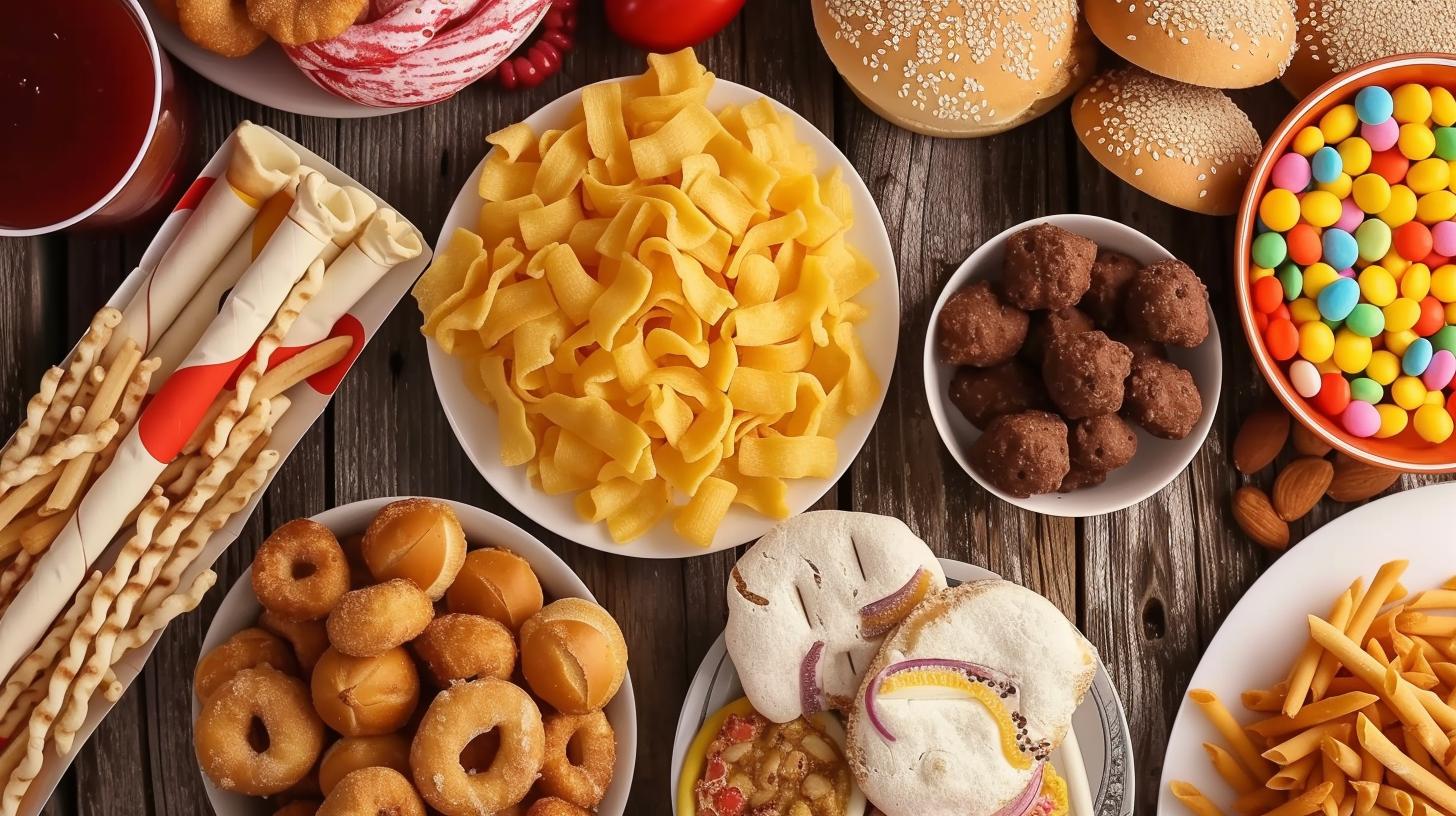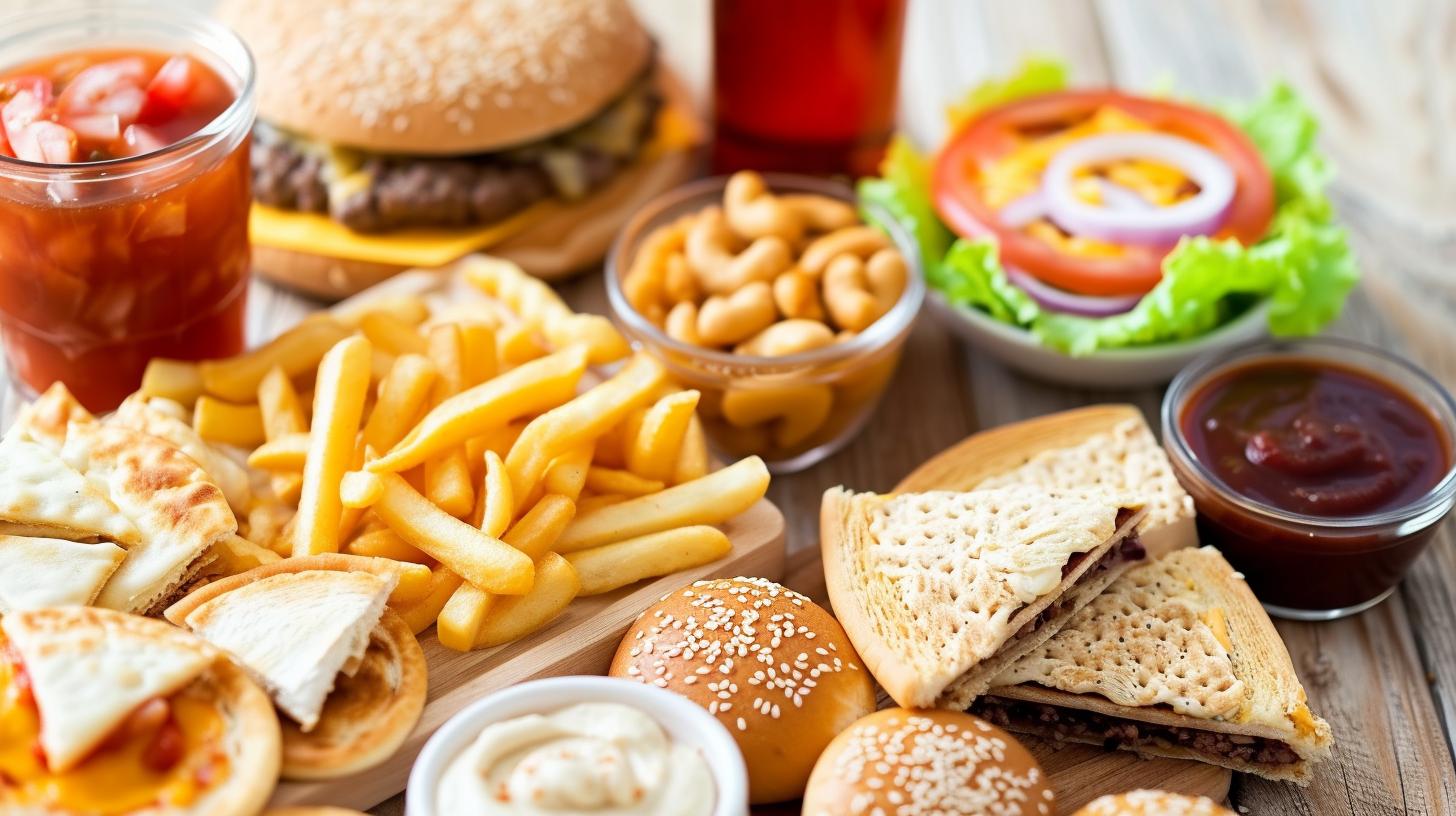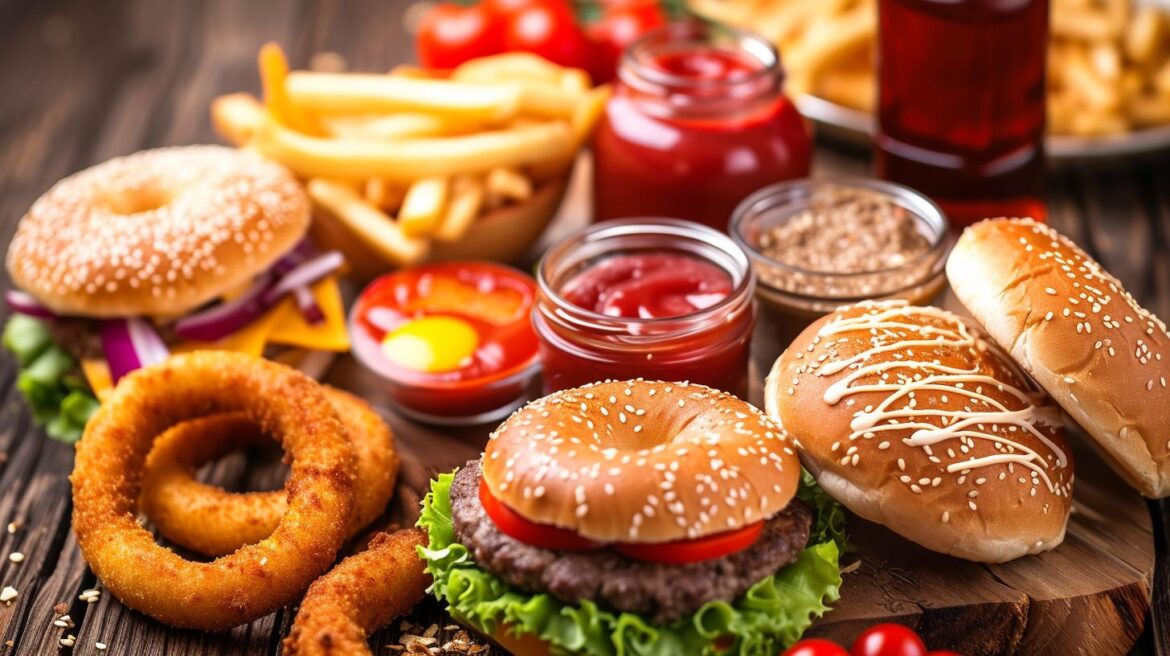What does junk food mean in Kannada? This article delves into the concept of junk food and its implications in Kannada culture, exploring the language, history, and health impact of this dietary phenomenon. From understanding the term “junk food” in Kannada to examining its cultural significance and government regulations, we will take a comprehensive look at how junk food has permeated the cultural landscape of Karnataka.
In recent years, the consumption of junk food has become increasingly prevalent in Karnataka, raising concerns about its impact on public health. As such, it is crucial to understand the origins of junk food in the Kannada-speaking regions, as well as its integration into traditional cuisine and popular festivals. Additionally, we will delve into the use of Kannada language in junk food marketing and advertising and explore strategies for promoting healthy eating habits within Kannada society.
As we embark on this exploration of junk food meaning in Kannada, it is important to consider not only the linguistic translation but also the cultural and societal implications of this dietary phenomenon. Join us as we unravel the complexities of junk food and its role in shaping contemporary Kannada culture.
Understanding the Term Junk Food in Kannada
Translating “Junk Food” to Kannada
The term “junk food” refers to unhealthy, processed, or pre-packaged food that is high in calories, sugar, or fat. When we look to translate this concept into Kannada, the closest translation for “junk food” would be “ಕೆಂಪು ಆಹಾರ” (kempu aahara). This translation encompasses the idea of unhealthy and low-nutrient food that is often associated with junk food.
Defining “Junk Food” in Kannada Culture
In Kannada culture, “junk food” not only signifies unhealthy eating habits but also denotes a preference for fast and convenient food options. The term has come to represent a wide range of snack items that are readily available and appeal to people of all ages. Common examples of junk foods in Kannada society include deep-fried snacks like “bonda,” “vada,” and “pakoda,” as well as sweets like “jalebi,” “burfi,” and “laddu”.
The Influence of Westernization on the Understanding of Junk Food in Karnataka
With the influence of Westernization and globalization, the concept of junk food has expanded beyond traditional Kannada cuisine. Fast-food chains and international snack brands have become increasingly popular, further contributing to the prevalence of junk food in Karnataka. This shift has led to a broader understanding of junk food as encompassing not only local snacks but also foreign fast-food items such as burgers, pizzas, and fries.
Evolution of Attitudes Towards Junk Food Within Kannada Society
Over time, there has been a noticeable shift in attitudes towards junk food within Kannadiga society. While traditional homemade snacks continue to hold cultural significance, there is a growing acceptance and consumption of commercially produced junk foods. This evolution reflects changing lifestyles, dietary preferences, and accessibility to modern conveniences.
As we delve deeper into understanding the term “junk food” in Kannada culture, it becomes evident that the concept is multifaceted. It encompasses traditional local snacks as well as global fast-food options, reflecting both cultural roots and external influences on eating habits within Karnataka.
History of Junk Food in Karnataka
The history of junk food in Karnataka is a fascinating insight into the changing culinary habits and cultural influences in the Kannada-speaking regions. Over the years, Karnataka has seen a significant evolution in its consumption and perception of junk food, reflecting wider societal changes and globalization.
Early Influences on Junk Food Consumption
In the early days, traditional Kannada cuisine consisted largely of wholesome and nutritious foods that were deeply rooted in local agriculture and culinary traditions. However, as Karnataka opened up to international trade and experienced an influx of people from different parts of India and the world, there was a gradual shift in dietary patterns. This led to the introduction and integration of various types of processed and fast foods into the Kannada diet.
Globalization and Changing Palates
With increased urbanization and exposure to global cuisines, Kannadigas started embracing fast food options such as burgers, pizzas, fries, and carbonated drinks. These foods were initially considered exotic treats but soon became part of mainstream eating habits, especially among the younger generation.
Influence of Urbanization
The rapid growth of cities like Bengaluru brought with it the proliferation of fast-food chains and eateries offering a wide range of junk food options. The convenience factor combined with changing lifestyle preferences led to an upsurge in the consumption of junk food across Karnataka.
Cultural Adaptation
Interestingly, despite the influx of international fast-food chains like McDonald’s and Domino’s Pizza, there has also been a simultaneous adaptation of these foods to suit local tastes. This has resulted in unique fusion foods that blend global fast-food concepts with regional flavors, catering specifically to Kannada palates.

This historical evolution demonstrates how the concept of junk food has evolved in Karnataka over time – from traditional home-cooked meals to a more diverse range of convenient but often unhealthy options. Understanding this history provides important insights into the cultural shifts that have influenced eating habits in Kannada-speaking regions today.
Popular Junk Foods in Kannada Cuisine
When it comes to popular junk foods in Kannada cuisine, there are several items that have become staples in the diet of people in Karnataka. From savory snacks to sweet treats, these indulgent foods have found their way into the hearts and stomachs of people across the state.
One of the most beloved junk foods in Kannada cuisine is ‘Masala Dosa.’ Although dosa itself is a traditional South Indian dish, the masala dosa, with its crispy texture and flavorful potato filling, has gained immense popularity as a go-to snack or meal. People from all walks of life enjoy indulging in this delicious and satisfying treat.
Another popular junk food in Karnataka is ‘Bonda,’ a deep-fried snack that comes in various forms such as aloo bonda (potato filling), mixed vegetable bonda, and even sweet bonda. This addictive snack is commonly found in street food stalls and has become a favorite among locals.
‘Chaat’ is yet another widely consumed junk food in Karnataka. Whether it’s pani puri, sev puri, or bhel puri, these tangy and spicy snacks have captured the taste buds of Kannadigas. The combination of crunchy elements, tangy sauces, and flavorful chutneys makes chaat an irresistible indulgence.
In addition to savory snacks, Kannada cuisine also boasts a variety of sweet temptations that are considered junk food. Traditional sweets like ‘Mysore Pak,’ ‘Gulab Jamun,’ and ‘Jalebi’ are often enjoyed during festivals and celebrations. These sugary delights may be delectable but also contribute to the prevalence of junk food culture in Karnataka.
Furthermore, the influence of fast-food chains cannot be overlooked when discussing popular junk foods in Kannada cuisine. Items like burgers, fries, pizza, and fried chicken have made their way into mainstream diets through international food chains, further contributing to the consumption of junk food within Kannada society.
Overall, these popular junk foods have established themselves as integral parts of Kannada cuisine despite their potential negative health implications when consumed excessively.
Impact of Junk Food on Kannada Health
Junk food, meaning in Kannada as “ಮಿಥ್ಯ ಆಹಾರ” (mithya aahara), has become increasingly prevalent in the Kannada-speaking regions of Karnataka. This section will delve into the impact of consuming junk food on the health of individuals within Kannada culture.
### Health Consequences of Consuming Junk Food in Kannada Culture:
1. Obesity and Weight Gain: The consumption of fried snacks, sugary beverages, and high-calorie fast food has contributed to an increase in obesity rates among Kannada-speaking populations. This trend is especially concerning among children and adolescents who have easy access to junk food.
2. Heart Disease and High Blood Pressure: The high levels of unhealthy fats, sodium, and sugar in junk food can lead to heart disease and hypertension among those indulging in these foods frequently.
3. Digestive Issues: The lack of fiber and nutrients in junk food can result in digestive problems such as constipation, bloating, and indigestion.
4. Type 2 Diabetes: The excessive consumption of sugary snacks and beverages has been linked to an increased risk of developing type 2 diabetes among individuals in Karnataka.
5. Poor Dental Health: Regular intake of junk food can lead to tooth decay, cavities, and gum disease due to the high sugar content present in many processed snacks.
It is evident that the prevalence of junk food within Kannada culture has had detrimental effects on the overall health and well-being of individuals within the community. Government authorities and healthcare professionals are recognizing the urgency to address this issue by implementing strategies for promoting healthier dietary habits and lifestyle choices among Kannadigas.
Efforts such as increasing awareness about the consequences of consuming junk food through educational campaigns, promoting traditional Kannada cuisine that prioritizes fresh ingredients and balanced meals, as well as enforcing stricter regulations on the sale and marketing of unhealthy snacks are crucial steps towards combatting the impact of junk food on the health of Kannada people.
By encouraging a shift towards nutritious eating practices, it is possible to mitigate the negative effects associated with excessive consumption of junk food in Kannada culture.
Cultural Significance of Junk Food in Kannada Society
Junk food holds a significant cultural place in Kannada society, especially during festivals and celebrations. The consumption of traditional snacks and sweets is an integral part of Kannada culture, and this has extended to the incorporation of junk food into various festive occasions. From crispy vadas to sugary jalebis, junk food has become intertwined with the social fabric of Kannada society.

During festivals such as Diwali, Ugadi, and Dussehra, it is customary for families to indulge in a variety of savory and sweet treats. This includes popular junk foods such as masala dosa, bonda, and other deep-fried delights. Additionally, street vendors often sell an array of junk food items like chaat and pav bhaji during these festive times. The presence of these treats adds to the celebratory atmosphere and brings people together in enjoyment of these delectable bites.
The cultural significance of junk food in Kannada society can also be observed during traditional ceremonies such as weddings and religious rituals. It is commonplace for assorted snacks like samosas, pakoras, and gulab jamuns to be served at these events. These items are not only meant to delight the taste buds but also symbolize abundance and generosity in the Kannada culture.
As a result, junk food has become emblematic of hospitality and celebration in Kannada society. It plays a role in strengthening social bonds and fostering a sense of community among individuals. The practice of sharing and savoring these indulgent foods creates an atmosphere of conviviality that is deeply ingrained in the cultural ethos of Karnataka.
In summary, junk food holds cultural significance within Kannada society by being intimately linked with festivals, celebrations, and communal gatherings. Its presence at these events fosters a sense of togetherness while adding vibrancy to cultural traditions. The role played by junk food in enhancing the joyous spirit of festivities cannot be overlooked when examining its place within Kannada culture.
Kannada Language and Junk Food Advertising
In the context of Kannada culture, the promotion and advertising of junk food products play a significant role in shaping consumer choices and preferences. The use of Kannada language in junk food marketing and advertising has become increasingly prevalent, influencing the way people perceive and consume these products. This section seeks to analyze the impact of using Kannada language in promoting and marketing junk food in Karnataka.
The term “junk food meaning in Kannada” can be translated as “ಜಂಕ್ ಫುಡ್ ಅರ್ಥ ಕನ್ನಡದಲ್ಲಿ”, where “junk food” is referred to as “ಅನುಪ ಆಹಾರ” in the Kannada language. Understanding this translation provides insight into how junk food is perceived and represented within the local cultural context.
Historically, the use of Kannada language in junk food advertising has been intertwined with the broader cultural landscape of Karnataka. Advertisements often leverage local dialects and colloquialisms to appeal to regional sensibilities, making the consumption of junk food seem more familiar and relatable to Kannada speakers.
Moreover, the proliferation of digital media has facilitated targeted advertising campaigns that utilize Kannada language to connect with a wider audience. Social media platforms, websites, and mobile applications have become integral channels for promoting junk food products using localized content, including slogans, jingles, and endorsements in Kannada.
However, this practice has raised concerns about the ethical implications of promoting unhealthy dietary choices through culturally resonant messaging. Critics argue that by employing linguistic familiarity and cultural references, advertisers may be normalizing the consumption of junk food among Kannada-speaking communities, thereby contributing to adverse health outcomes.
As such, there is a growing need for regulatory measures that address the ethical dimensions of using Kannada language in junk food advertising. It is essential for authorities to consider how linguistic strategies intersect with public health concerns when formulating policies aimed at curbing misleading or detrimental marketing practices related to junk food within the state.
Government Regulations on Junk Food in Karnataka
In recent years, there has been a growing concern about the consumption of junk food in Karnataka, especially among the younger generation. In response to this, the government of Karnataka has implemented several regulations and laws aimed at controlling the sale and consumption of junk food in the state. These regulations are designed to promote healthier eating habits among the citizens of Karnataka and reduce the negative impact of junk food on public health.
One such regulation is the ban on the sale of junk food within a certain distance from educational institutions. This regulation aims to limit children’s access to unhealthy food options while they are at school. By enforcing this rule, the government hopes to encourage students to make healthier choices when it comes to their diet and lifestyle.
Additionally, Karnataka has also imposed strict labeling requirements for packaged junk food products. Manufacturers are required to provide detailed information about the nutritional content of their products, including calorie, fat, sugar, and sodium content. This transparency allows consumers to make informed decisions about their food choices and encourages them to opt for healthier alternatives.
Furthermore, there are advertising restrictions in place for junk food products in Karnataka. Advertisements for unhealthy food items targeting children are heavily regulated, with an emphasis on promoting nutritious foods instead. This is part of an effort by the government to combat unhealthy eating habits from a young age and instill a culture of healthy living among future generations.

It is clear that the government of Karnataka is taking proactive measures to address the issue of junk food consumption in the state. However, there are still ongoing discussions and debates about whether these regulations are sufficient or if further action is necessary to promote healthier eating habits among Kannada speakers.
| Regulations | Impact |
|---|---|
| Ban on sale near schools | Limits children’s access to unhealthy options |
| Labeling requirements | Provides transparency for consumers |
| Advertising restrictions | Promotes nutritious foods instead |
Promoting Healthy Eating Habits in Kannada
Junk food has become a pervasive part of modern culture, and this is no different in the Kannada-speaking regions of India. The term “junk food” refers to highly processed and unhealthy foods that are typically high in calories, sugar, and fats. In Kannada, junk food can be translated as “ನಿಯಮಿತ ಆಹಾರ,” which literally means ‘regular diet’, but is often used to refer to unhealthy or fast foods.
The consumption of junk food has been steadily on the rise in Karnataka, particularly among the younger generation. This can be attributed to the increasing influence of Western fast-food chains, as well as the busy lifestyles that many people lead today.
The history of junk food in Karnataka is relatively recent, with traditional Kannada cuisine consisting mainly of wholesome and nutritious foods. However, with globalization and urbanization, there has been a shift towards more convenient but less healthy eating habits.
Some popular junk foods in Kannada cuisine include vada pav, masala dosa, churumuri, and various fried snacks like pakoras and bondas. While these foods may be delicious and satisfying, their high levels of unhealthy fats and carbohydrates pose serious health risks for those who consume them regularly. The impact of junk food on Kannada health cannot be overstated; the prevalence of conditions like obesity, diabetes, and heart disease has been on the rise in Karnataka due to poor dietary choices.
In order to combat the prevalence of junk food in Kannada culture, it is essential to promote healthy eating habits among the local population. This can be done through various means such as education on nutrition and cooking skills, promoting local organic produce through farmer’s markets and community-supported agriculture programs, implementing stricter regulations on marketing unhealthy foods to children, providing access to affordable healthy options in schools and workplaces, and encouraging physical activity through sports or fitness programs.
By taking steps to combat the prevalence of junk food in Kannada culture, it is possible to improve the overall health and well-being of the population while preserving traditional culinary practices that have sustained Kannada society for generations. It is important for individuals as well as communities to recognize the importance of making healthier dietary choices for themselves and future generations.
Conclusion
In conclusion, the concept of junk food holds significant implications in Kannada culture, as it not only affects the health of individuals but also plays a role in societal and cultural practices. Through our exploration of the term “junk food meaning in Kannada,” we have gained a better understanding of how this global phenomenon has made its mark in the Kannada-speaking regions.
The translation and definition of junk food in Kannada shed light on the prevalence and acceptance of such foods in Karnataka. The history of junk food in Karnataka reveals how the concept has evolved over time and become intertwined with modern eating habits, especially among the younger generation.
Popular junk foods in Kannada cuisine, such as vada pav, bhel puri, and masala dosa, illustrate the blend of traditional flavors with fast-food influences. While these foods are enjoyed by many, their impact on Kannada health cannot be overlooked. The consumption of junk food has led to various health consequences, including obesity, diabetes, and heart disease, which pose a significant challenge to public health in Karnataka.
Moreover, junk food has found its place in Kannada festivals and celebrations, adding a layer of cultural significance to its existence. However, this cultural association also raises concerns about promoting unhealthy eating habits during these festivities.
The use of the Kannada language in junk food advertising further strengthens the bond between consumerism and cultural identity. It becomes crucial to examine government regulations on junk food in Karnataka to ensure that measures are taken to combat the prevalence of unhealthy eating habits effectively. Strategies for promoting healthy eating habits should be prioritized to safeguard the well-being of people within Kannada society.
Overall, while junk food has become an undeniable part of Kannada society and culture, efforts should be made to strike a balance between preserving culinary traditions and promoting healthier lifestyles. Educating individuals about making informed dietary choices and advocating for stricter regulations on junk food advertising can contribute to addressing the challenges posed by excessive consumption of junk food in Karnataka.
By doing so, it will be possible to safeguard both individual health and cultural heritage within the Kannada-speaking community.

